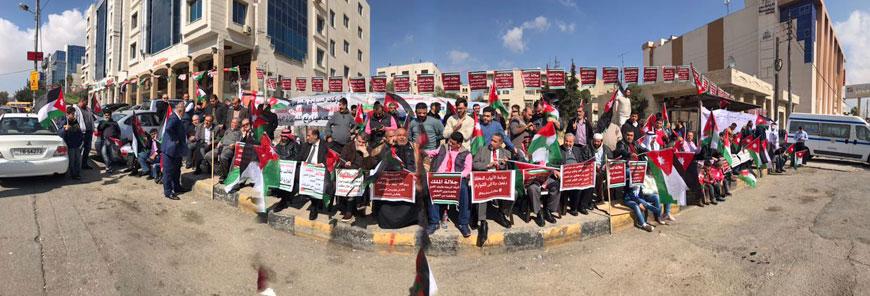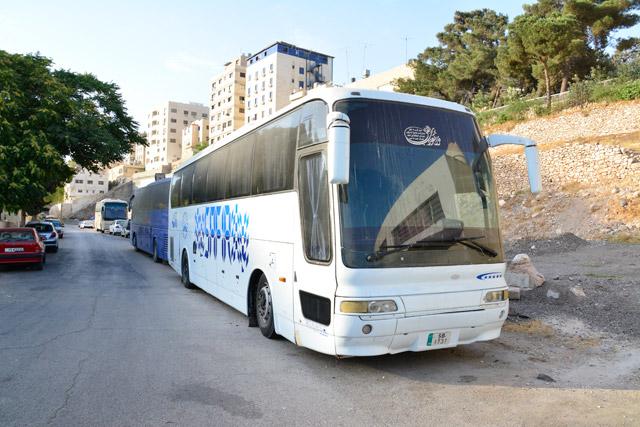You are here
Private companies, gov’t continue arguement over National Hajj Company
By Sawsan Tabazah - Apr 27,2017 - Last updated at Apr 27,2017
AMMAN — The Awqaf Ministry has reiterated that the National Hajj Company is legal and will provide quality services, without dominating the market.
The National Hajj Company is an independent company that follows the Hajj Fund, a financially and administratively independent institution separated from the ministry, the Director of the Hajj and umra department at the Awqaf Ministry, Yousef Qudah, told The Jordan Times on Thursday.
Established in 2012 by the Awqaf Ministry, the Hajj Fund allows Jordanian subscribers to save money on a periodic basis in order to perform Hajj (the greater Muslim pilgrimage to Mecca).
Umra is the lesser Muslim pilgrimage to Mecca.
The company was registered at the Amman Chamber of Commerce, Qudah clarified.
230 companies offer services to over 45,000 Jordanian umra pilgrims annually, in addition to other Arab nationals in Jordan.
Operators have been protesting the formation of the national company labeling it as “illegal”, claiming that its owner, a governmental institution, would be “unable” to monitor its activities.
They also claimed that the creation of the company would lead to the closure of all 200 private companies that currently provide an income for around 10,000 families, as people would “trust” the government-based institution more and refuse to deal with private companies.
“One more company will not control the market… if people dealt with it more than other private companies it would prove people’s confidence with their government and the quality service provided through it,” Qudah noted.
The main dispute between the ministry and the Hajj and umra operators revolves around a threat from private companies not to take part in the Hajj season if the ministry does withdraw the decision to limit the cost of the Hajj to JD1990 per pilgrim.
While companies insisted raising the cap to over JD2600, after negotiations they offered to limit it at JD2150, Qudah noted.
The dispute led the Hajj Fund to register the company to resolve the situation, Qudah claimed.
“Many companies made offers for less than JD1990, which proves the ministry’s vision that a better quality of food, hotels and services can be provided for lower costs,” he argued, adding that the national company must create some kind of motivation for other companies to improve their services.
Kamal Abu Thiab, the spokesperson for the Religious Tourism Committee at the Jordan Society of Tourism and Travel Agents, told The Jordan Times that Awqaf Minister Wael Arabiyat "ignored" all calls for talks, especially after the new Hajj instructions and prices were issued without consulting with the committee.
Qudah denied Abu Thiab’s claims, saying that Arabiyat met with three to four different commissions representing the companies over 15 times, including meeting the owners of the companies in the Cabinet with MPs.
Qudah said that the minister’s "door is open", but he cannot meet everyone due to his busy schedule and numerous engagements at the ministry, the Hajj and Umrah Department, the Zakat Fund and the Hajj Fund.
“The media has become the only way to reach out to the minister to highlight the sector’s issues,” Abu Thiab told The Jordan Times.
Abu Thiab said that he tried to reach out to Arabiyat in a live radio show on Wednesday, which was hosted Mahmoud Huwaian on JBC Radio, but the call was ended after he introduced himself .
A video clip purportedly showing Arabiyat asking the host to disconnect the line with Abu Thiab was shared on social media.
The religious committee spokesperson noted that the protest will escalate until the National Company of Hajj closes down, noting that a press conference will be held on Monday to discuss the issues related to this Hajj season.
Related Articles
AMMAN — Owners of Hajj and umra companies on Sunday protested the formation of the National Company of Hajj and umra, owned by the Ministry
AMMAN — Travel agencies have filed a lawsuit against Awqaf Ministry for establishing its own travel operator, claiming such move is “illegal
AMMAN — Head of the Hajj and umra committee Majdy Btoush on Wednesday said that no bus will be allowed to leave the country before obtaining



















